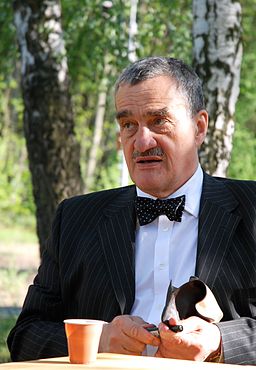Czech presidential elections: Surge in support for Schwarzenberg sets up close second round
By Sean L Hanley, on 21 January 2013
The Czech Republic held first-round presidential elections on 11-12 January. Seán Hanley assesses the results and how the two remaining candidates – Miloš Zeman and Karel Schwarzenberg – are likely to fare when the country goes back to the polls for the second-round run off later this month.
Few observers, even a matter of weeks beforehand, would have predicted the success of the two candidates who will be contesting the second round run-off to choose the Czech Republic’s first directly elected president, which takes place on 25-26 January.
Miloš Zeman, who topped the poll in the first round on 11-12 January with 24.2 per cent, is a former Prime Minister who led the Czech Social Democratic Party between 1993 and 2001. However, he acrimoniously split with the party he once led and his return from political retirement in 2009 to lead his own Citizens’ Rights Party (SPOZ) was regarded by many as a vanity project. SPOZ failed to enter parliament in the May 2010 parliamentary elections and Zeman’s presidential bid, announced in June last year, seemed set to be similarly unsuccessful.
Karel Schwarzenberg, the aristocratic Czech foreign minister, who ran Zeman a close second with 23.4 per cent of the vote, was perhaps always a more plausible contender. A scion of the Austro-Hungarian nobility, diplomat and former chief of staff to Václav Havel, Schwarzenberg was one of the Czech Republic’s most popular politicians. The electoral success in 2010 of TOP09, the newly formed party he led, owed much to Schwarzenberg’s appeal as retro anti-politician. However, although one of the first to announce his candidacy, Schwarzenberg‘s campaign soon flagged badly, damaged by TOP09’s role in the governing centre-right coalition and unwavering commitment to austerity. At 75, Schwarzenberg was the oldest candidate and had not always appeared in robust good health. By December 2012 polls still put his support at under 10 per cent. (more…)
 Close
Close






